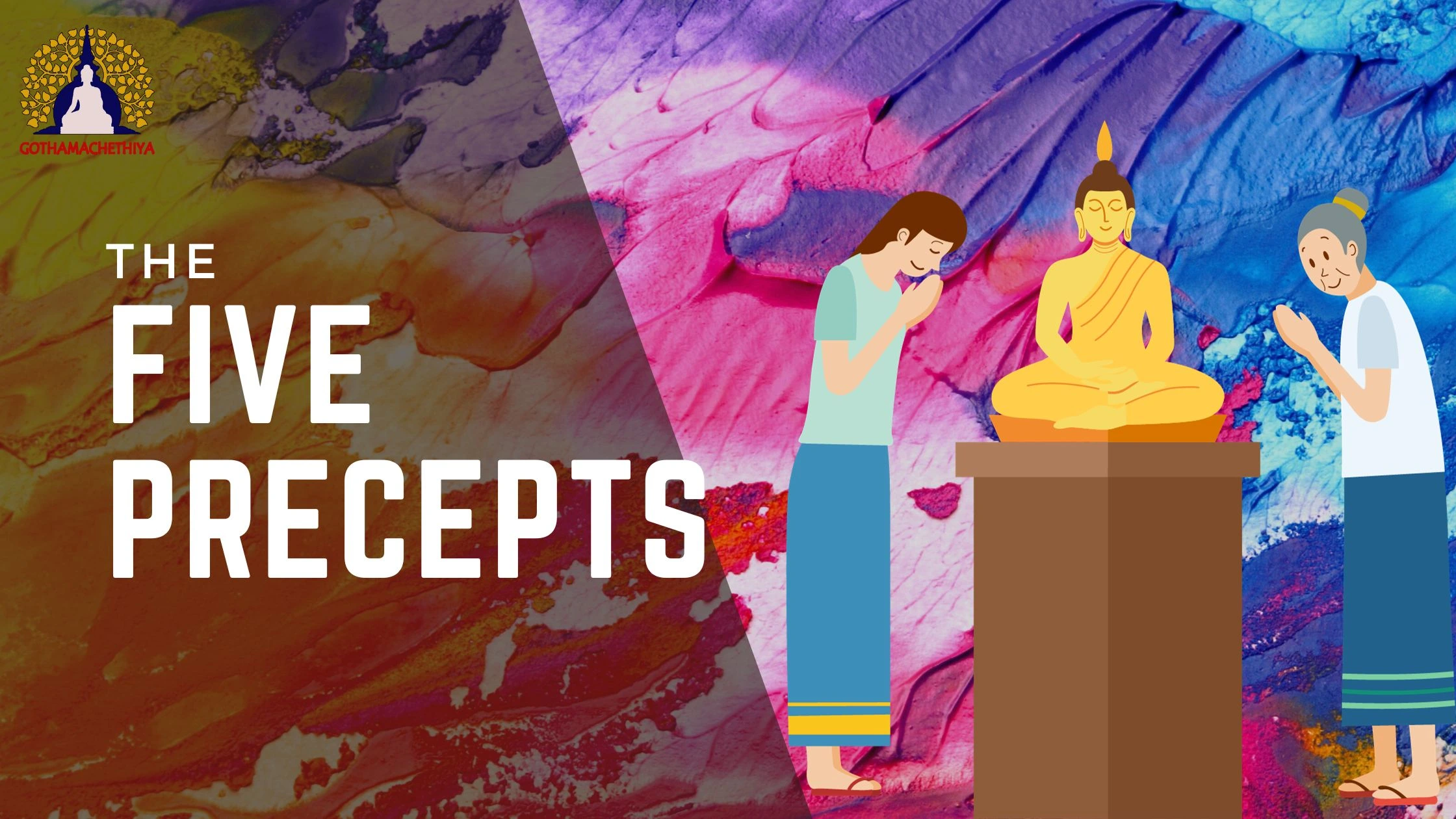The teachings of the Buddha emphasize the significance of ethics as the cornerstone for cultivating positive qualities in the mind. This article explores the Buddha’s guidance on ethical conduct through the Five Precepts, emphasizing their role in eliminating worry, fostering meditation, and contributing to the well-being of oneself and others.
The Five Basic Ethical Rules
The Buddha advocated five fundamental training rules for lay disciples, collectively known as the Five Precepts. These precepts, described as “five great gifts,” serve as a foundation for a mindful and ethical life:
- Abstaining from killing living beings.
- Abstaining from stealing.
- Abstaining from sexual misconduct.
- Abstaining from telling lies.
- Abstaining from using intoxicating drinks and drugs.
Buddhists are encouraged to recite these precepts daily, and they are often offered at the beginning of various activities or when visiting a monastery. The commitment to these precepts brings clarity of mind and aligns with the Buddha’s teachings on ethical living.
Breaking and Renewing Precepts
Breaking a precept is considered a part of the human experience. The Buddha emphasized the power of intention, asserting that even the determination to follow the precepts in the future contributes to mental development. Acknowledging a breach and recommitting to the precepts strengthens one’s resolve and commitment to ethical living.
Doubts about precepts can be clarified by seeking guidance from knowledgeable friends, ensuring confidence in adhering to ethical guidelines. The challenges of maintaining precepts are outweighed by the benefits, such as a tranquil mind during meditation and a sense of gratitude for avoiding negative consequences.
Addressing common questions about the precepts, it should be clarified that accidental actions do not break precepts, and breaking a precept should be met with reflection and a renewed commitment. Regretting past transgressions is deemed unproductive, with the focus shifting to present adherence to the precepts.
Eight Precepts and Additional Observances
In addition to the Five Precepts, the Buddha recommended lay disciples to observe the Eight Precepts on Uposata days, which typically occur four times a lunar month. These additional guidelines further amplify the commitment to ethical conduct and mindfulness, offering practitioners an opportunity for heightened spiritual practice and self-discipline.
Observing the Eight Precepts on Uposata days provides lay practitioners with a structured framework for intensifying their commitment to ethical living, mindfulness, and spiritual progress. It serves as a voluntary expression of devotion, a temporary renunciation of worldly indulgences, and an opportunity for self-purification.
Conclusion
In conclusion, the Buddha’s teachings on ethics, encapsulated in the Five Precepts, offer a profound guide for cultivating a mindful and compassionate life. The adherence to these ethical principles brings immeasurable peace and comfort to oneself and others, reinforcing the Buddha’s characterization of them as “great gifts.” The Buddhist teaching encourages continuous reflection, commitment, and the pursuit of a mindful and ethical path for personal and collective well-being.

Add a Comment
You must be logged in to post a comment